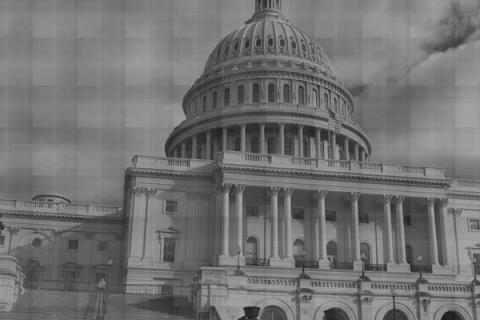 Ryan Rodrick Beiler / Shutterstock.com
Ryan Rodrick Beiler / Shutterstock.com
Optimism in Washington, D.C. over the prospects of passing immigration reform remains high. Last week, Senate Majority Leader Harry Reid (D-N.V.) announced debate on Senate Bill 744 will begin on June 10. With surprisingly little clamor from either side of Congress, immigration reform advocates believe that partisan bickering could be overcome in passing immigration reform this year.
Many Republicans have long opposed any comprehensive immigration reform, calling it "amnesty" and arguing publicly that it rewards what they describe as criminal behavior. However, Democrats are emboldened that Republicans must deal with immigration reform before it is too late.
No recent Republican presidential candidate has gotten a majority of Latino votes. In fact, the highest any Republican presidential candidate has gotten recently was George W. Bush's 40 percent in 2004.
With registered Latino voters now 11 million strong and 50,000 Latino citizens turning 18 monthly, Republicans are currently at a serious disadvantage as the Latino voting bloc continues to lean toward the Democratic Party. President Obama's 71 percent among Latinos in 2012 came close to topping Bill Clinton's 72 percent in 1996.
Democrats in Washington are betting Republicans must act before the 2014 midterm elections or face another overwhelming rejection by Latino voters. Sen. Chuck Schumer (D-N.Y.) recently told CNN he believes immigration reform will pass by July 4 and eventually the “Republican Party will be consigned to a minority party for a generation.”
Chris Newman, Attorney for the National Day Laborer Organizing Network (NDLON) and lead attorney in several high profile law suits against federal immigration policies, believes the cause of immigration reform has become an electoral issues because immigrant activism put it there.
He argues:
“Immigration reform has been on the national agenda since 2001, but it has risen to the top of the national conversation because immigrants have made a case that the status quo immigration laws are immoral.”
Newman and others are optimistic of this new opportunity, but urge caution that any reforms passed must address the issues that mobilized advocates in the first place. According to Newman and immigration reform activists like him, “suspension of deportation is a necessary first step.”
Instead, some Republicans have focused on border enforcement and expanding access to immigrant workers in agriculture and hi tech industries through temporary visas -- not necessarily a pathway to citizenship. It is far from how Newman and others see reform.
As words from each side come together, the specifics may soon spread far apart. With immigration reform now the most prominent national issue for Congress, how each party defines “reform” appears to be the biggest battle.
